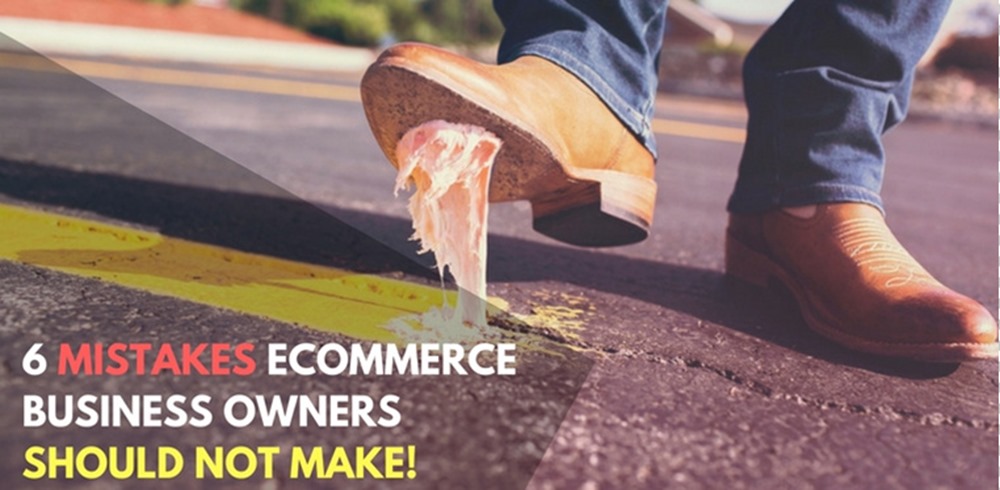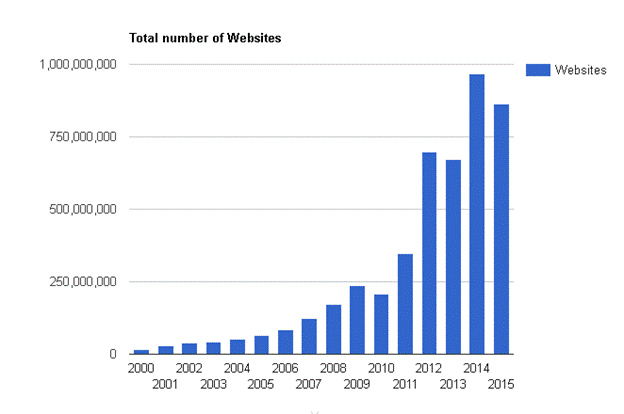6 Mistakes E-Commerce Business Owner Should Avoid At All Costs!

Starting an e-commerce venture is as challenging as it can be rewarding. This is true especially considering that entrepreneurs put in their heart and soul, their savings and countless man-hours to make their e-commerce business see the light of day.
A prudently drawn up road map may be your path to success. Such a process would primarily include identifying key milestones to be achieved as well as key roadblocks to avoid. Here, we discuss the 6 common mistakes new e-commerce businesses make, and how to navigate around them.
Contents [hide]
1. Choosing The Wrong E-commerce Platform
The e-commerce platform or software that your e-commerce business utilize is one of the primary assets of your business. If you choose your platform in a haphazard manner, without fully understanding it, mapping your needs, it can turn into a fatal mistake for your start-up as it can turn out to be over-customized or inadequate or exorbitant in the long run. Options available to launch your ecommerce website are SaaS ecommerce solutions like Purplestores, Buildabazaar, Zepo or licensed softwares like IBM websphere and Open source platform solutions like Magento. Merchants should clearly study all the three options with the pros and cons of each. Few aspects to be considered to avoid this pitfall would be:
- How soon you want to launch your site
- Think of the Security aspect
- The customization level
- The budget
- The technical team (resources in-house)
Ideally, the e-commerce platform you choose should provide an optimal user experience based on the user expectations for visiting your website. For small businesses a SaaS solution suits best. They are budget friendly, need low technical know-how and take just one day to launch your own webstore.
2. NO Search Engine Optimization (SEO)
A critical rookie mistake is not investing smartly into marketing and optimising your online business. New e-commerce businesses typically focus on print and media advertisements for creating awareness and reaching out to potential consumers, which may be fruitful initially, but is not a sustainable practice. However, if your website does not show up on internet searches, your business is bound to suffer.
SEO is the tool for visibility of your website. It makes the website easy for both users and search engine robots to understand. although, SEO takes time to show results, which is why new e-commerce businesses look for other means of creating visibility like investing on Google Adwords and Facebook targeted campaigns. But, in the long run, SEO is a powerful tool which can route targeted traffic to your website continuously even after you stop spending in paid ads.
3. “Since I have made it, customers will come to buy” – Not Necessarily
While having confidence in one’s product/website is good, overconfidence is not. This is true especially for e-commerce businesses vying to build traffic. According to Internet Live Stats, there are over 1.4 billion web stores on the internet. And as per worldwidewebsize, there are 4.74 billion pages available on web, and the number is increasing steadily each day.
 Image Source: Internetlivestats
Image Source: Internetlivestats
So will your customers find you among such huge numbers? How will you make sure to sustain and grow in such a competitive environment? In a time where most businesses and valuations take into account the website traffic, simply building an exceptional website with great content will not do. You have to get the content and your website shared, liked, followed and talked about on social media. This, along with SEO, will ensure that your website gets picked up and featured in online searches, as search technology relies on metrics of relevance and importance by tracking what people do on the internet.
4. Not Creating A Social Image among your target customers:
Social Image matters in each business be it online or at a brick and mortar store. And when we talk about social image of eCommerce business it includes creating social profiles with good number of followers and update it with regular posts, images and videos. For instance, a brand’s Facebook page with 20 followers or with no latest updates will project a negative or a lackadaisical impact on customers. Similarly if your Facebook page is quite popular and Twitter page is neglected, impacts your brand’s social value. Hence it is imperative to form a consistent social media content calendar and be visible and engage consumers on all platforms diligently.
In order to do this successfully, one of the easiest and most effective way is to create a social media presence by:
- Optimizing social media posts by using high conversion keywords;
- Provide share-worthy content instead of sales pitches to create value in the eyes of the consumer;
- Let your users be your marketing channels, by sharing reviews of your products/services;
- Interact with your users by adding social sharing buttons in strategic locations, joining groups, building relationships with influencers, starting a blog and even using hashtags’
In a virtual ocean of websites, not having an active social media presence can spell a certain doom for your new e-commerce business. Apart from social profiles, your eCommerce image also depends upon the reviews you get. Investing time and effort into creating a positive social media image in the minds of users will lead to increased consumer interaction and engagement, better reviews and eventually result in increased traffic and business.
5. No “Contact Us”, “About Us” or “Live Chat” For Troubleshooting
Do not underestimate the value of having an “About Us/Contact Us” page on your webstore, and do not ignore the layout or content on this page. This is a major mistake as these pages are among the top three visited on ecommerce websites.
– The “About Us” page helps you, as an e-commerce business, tell users your story, your vision and USP, allowing the user to relate to the business. These pages are extremely important to enable consumers to ascertain your business’ physical location, allowing them to gauge shipping times as well as trust that the business is legitimate. Would you trust a webstore if there was no address or About Us page?
– Even the Government is contemplating making it mandatory for webstores to have a Contact Us page with physical office locations in order to bolster trust in online businesses as well as dissuade fraud.
– Having a live chat app on your website not only helps solve consumers’ confusion or queries, but can effectively be used to increase sales. The report by E-Marketer says that, almost two in 10 live chat respondents did more than 75% of their holiday shopping online, compared with 14% of those who did not chat. Moreover, while adding to the obvious convenience of the consumer having their questions answered immediately, this simple tool can help online businesses reduce contact center costs as:
- Lowering average interaction costs – one employee can handle multiple chats as opposed to a single phone call;
- Fewer employees are required due to Increase in efficiency by handling multiple chats
6. Focusing On Too Many Things
Having focus divided over multiple aspects takes focus away from all aspects over time – it stretches you too thin. This is true not only for e-commerce businesses, but for all businesses. The focus needs to be on building the business, not on a tiny (but critical) matter like business cards or logo design.
These things should be handled by a focussed and dedicated team, either outsourced or inhouse. Focusing too much on all the smaller details leads to a scattered approach, which will affect the business growth and bottom-line.
Matt Salzberg, Founder and CEO of Blue Apron says “founders of a young company will come up with hundreds of new ideas every day (I know my co-founders and I do). While most of these ideas are sure to be good ones, we’ve learned that we need to be thoughtful and selective about which to move forward with in order not to overwhelm ourselves and our employees. We all have limited time and resources, which is why we need to focus and prioritize.”
Conclusion
Building an e-commerce business and making it grow is challenging as it is. As an entrepreneur, avoiding certain mistakes can help you face these challenges and shine through the competition. While it may seem rather benign, avoiding certain mistakes can be the difference between a thriving business and a webstore no one visits or knows about.
You can choose to take steps and avoid these mistakes which, if allowed to continue, can snowball your optimistic start-up to certain demise.
About the Author : Amit Jain, founder Purple Stores, is an engineer from IIT Delhi, MBA from SP Jain Mumbai and worked with Fortune 5 company for 8 years in operations, finance, and risk before taking the entrepreneurial plunge. Amit is also an active speaker and contributor in the e-commerce space in India.

These are indeed for an eCommerce store but how about research? Before anyone gets in to an online business, one should research well about their competitors in the industry. Without doing competitors analysis, eCommerce stores may face big loss.